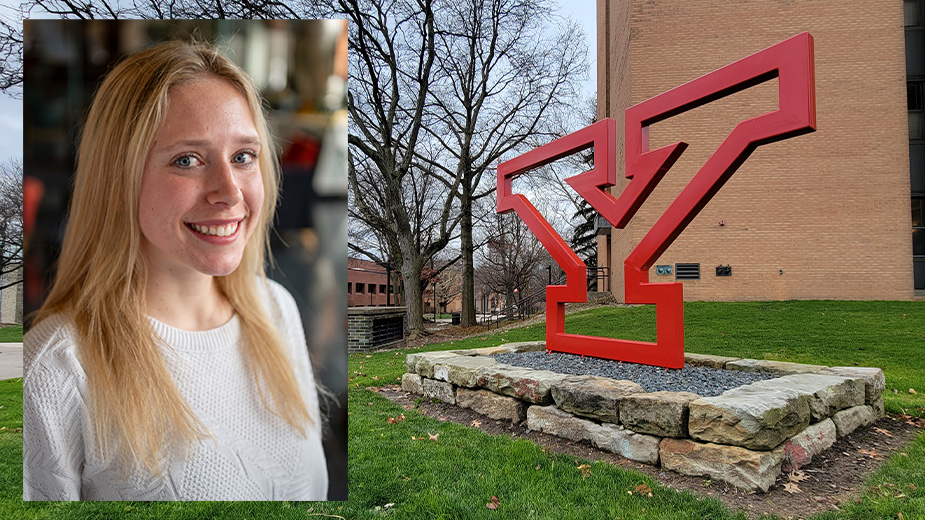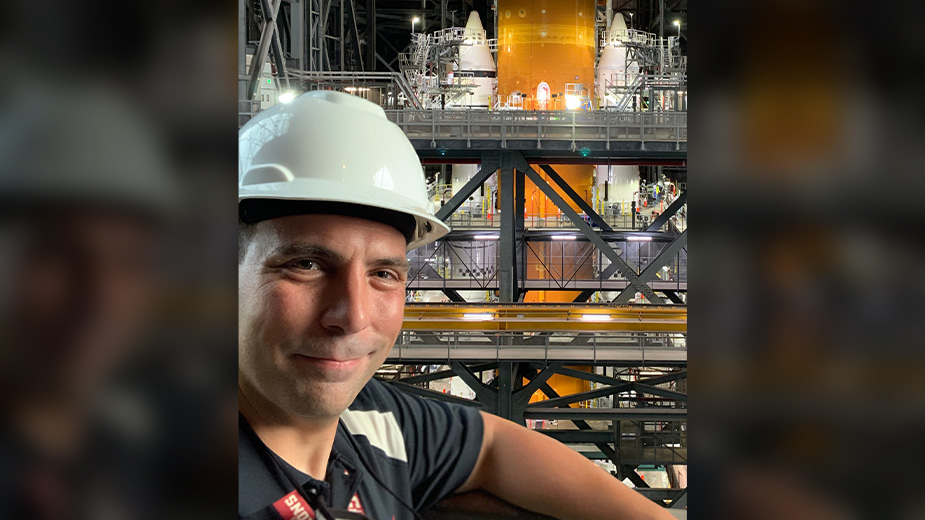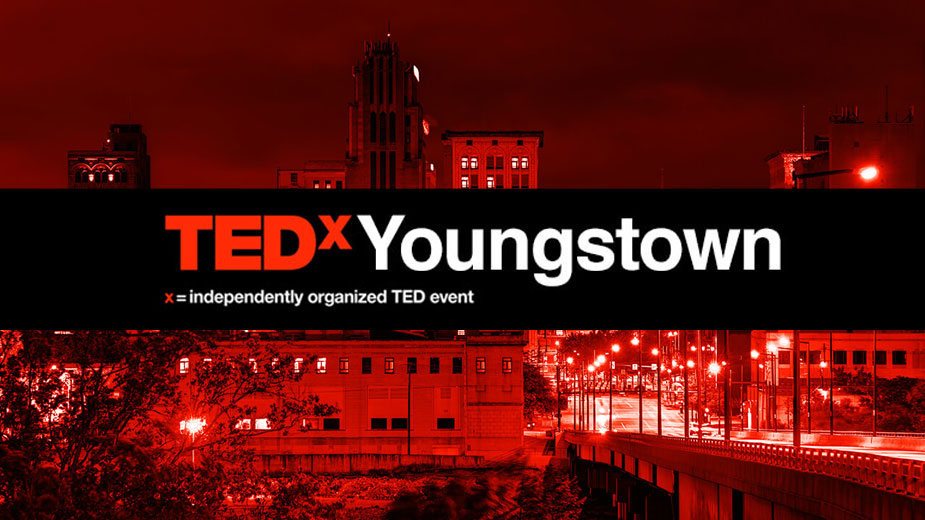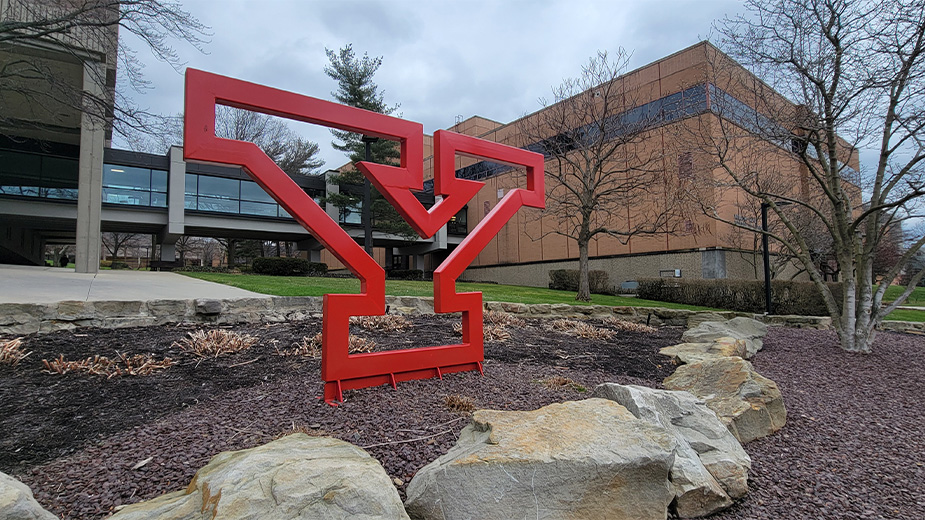A Glimpse into a YSU Student’s Stellar Journey
YOUNGSTOWN, Ohio – In the realm of astronomy and physics, Alexa Beyer, a senior astronomy and physics student at Youngstown State University, stands out as a bright star on the academic horizon.
Beyer has been completely immersed in her field of study, conducting research, presenting at a national conference and balancing life as a student-athlete, member of the Sokolov Honors College and active member in her community.
Originally from DeWitt, Michigan, Beyer came to YSU to play lacrosse, drawn to the small city feel.
“I love Youngstown because it was a small university, but it was big enough. There’s a great community surrounding it, and the athletic programs seem super promising,” Beyer said. “As soon as I stepped on campus, I knew this is definitely where I want to go.”
It wasn’t until her first day at orientation where she really considered what she may be interested in pursuing academically.
“Everyone always tells you to go into something you really enjoy. Pick a major that you will love,” she said.
Though Beyer struggled to narrow down her options, her older brother had been majoring in physics, and she found herself inspired. She went on to say it may have been a bit impulsive, but she knew she had an interest in STEM and stars, so she wanted to explore that avenue.
“Best impulse choice of my life,” she said, jokingly.
Beyer started her program in the midst of the Covid-19 pandemic, finding it difficult to adjust to online classes. However, she credited Michael Crescimanno, professor of physics, John Feldmeier and Patrick Durrell, professors of astronomy, and Donald Priour, associate professor of physics, as major inspirations for her perseverance and developing a love for the field. As campus began to open back up, she really leaned into the student-faculty interactions within the classroom that she had missed in her first year.
“Dr. Crescimanno is a high energy person, so his classes are never boring. I think that’s what was most exciting for me, when I sat down in his first class,” Beyer said. “It is easy to see that they love what they do. The energy and love they have for their science is contagious. Listening to someone talk about the things they love is so inspiring.”
It did not take long before she began to excel in her program, applying for a Research Experience for Undergraduates at Michigan State University. REUs are research programs built for undergrad students to provide real-life experience in their field of study, providing students tools and resources to be successful in the workforce and allowing for opportunities of research and networking.
“They taught us how to conduct research projects, apply to graduate school, how to write a CV, how to write papers, how to read papers, how to make a poster, etc. Those are all just skills that I never necessarily learned, so I was super excited to learn them there and bring them back to Youngstown State,” Beyer said.
At Michigan State, Beyer had one of her first opportunities to branch off on her own to conduct research within her field, spending her summer in East Lansing.
“I did research on an eclipsing X-ray binary star system. My job was basically to look at X-ray data from the Chandra space telescope, and to take that and try and figure out the binary period.”
After her experience there, she began to better understand the direction in which she wanted to take her professional career.
“I was super excited after Michigan State because from there, I knew my path in life,” Beyer said. “I wanted to go get my PhD, and I wanted to do astrophysics research.”
Not long after, she applied and was accepted into her second REU at Georgia State University, relocating to Atlanta, Georgia, for a summer.
Beyer worked with Russel J. White, professor and astronomer, during her REU. As they discussed their potential research, Beyer said, “He decided that it was time to use our new telescope data from the Gaia data Release 3 [Gaia DR3], which is a big star survey.”
“Over their lifetime, stars evolve to either slow down or speed up in their rotational velocity. This discovery was first found in 1967 by Robert Kraft and was defined as the Kraft Break, occurring around mid-spectral type F stars,” Beyer said. “Using this new data, I was able to empirically define the break in color, mass and temperature. We can use this break as a divide between low and intermediate mass stars, which can be related back to the internal structure of stars and their evolution.”
Her research conducted with White will be Beyer’s first published piece and has inspired her to continue working toward more exploratory projects. As a result of her REU, Beyer went on to attend an American Physical Society meeting this past fall where she was awarded Best Undergraduate Talk award. She also presented her research at the American Astronomical Society Meeting in New Orleans at a national conference.
Set to graduate in May 2024 with the intention of continuing on in her studies in graduate school, Beyer looks to the future with high hopes.
“I’m hoping, in the future, I get to either expand on the Kraft Break and go in depth there, but I’m completely open to going an entirely new route,” she said. “When I look towards my career goals, I want to be a forever, lifelong student. I never want to stop learning. I want to teach at the college level, and I want to continue to help the next generations of students learn everything about space that I never knew.”
She also attributed collaboration to student success with her program, especially as a student-athlete where collaboration is key.
“It’s really important to use not only the resources of your professors and asking them for help, but it’s super important that you get to know your classmates and the people that you’re going through the program with.”
Sharing her reasons to remain motivated, she highlighted the endless possibilities that can be found within astronomy and physics.
“Any second of any day, someone could find something completely new, groundbreaking findings in space, and then we have to change everything we know,” she said. “That person could be me, or it could be the person next to me. That’s what is so enticing about astronomy and physics – there are just so many routes you could take.”
Beyer hopes to continue inspiring future students and those interested in the field, providing the same motivation she found through her own program and professors.
“Ask smart people an infinite number of questions. Bother every professor you’ve ever had for every single bit of information that they can give you,” Beyer said.
For students and community members interested in learning more about the field, Beyer will be leading a few upcoming events hosted by the Society of Physics Students, including Astronomy on Tap on Feb. 23, an event for students and community members to socialize and engage with local astronomers. Additionally, a total eclipse viewing party will be held in Cleveland, Ohio, on April 8.
CREDIT: Youngstown State University.
Published by The Business Journal, Youngstown, Ohio.



